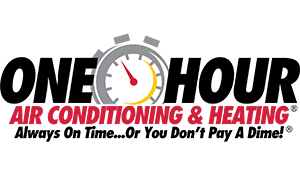Heat Pumps or Traditional AC Which is More Efficient?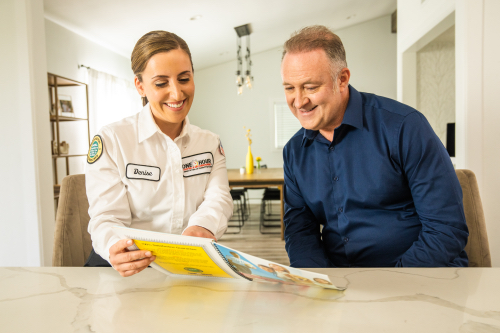
In the quest to maintain a cool and comfortable home during sweltering summers, homeowners often find themselves at a crossroads. Should they stick with the tried-and-tested traditional air conditioning or venture into the territory of heat pumps?
This decision isn’t just about comfort; it’s about cost-effectiveness and sustainability. If you’re a homeowner standing at this junction, read on as we explore the ins and outs of both options to find out which is more efficient.
The Basics of Cooling
Cooling your home efficiently requires understanding the mechanics behind the systems. Traditional air conditioners and heat pumps operate on similar principles, but their functions extend beyond just cooling. But which is more efficient to operate?
Understanding Traditional Air Conditioning
Traditional air conditioners have been the go-to choice for countless households. These units work by removing heat from indoor air and expelling it outside, leaving cooler air behind. This is achieved through a process involving refrigerant and evaporator coils. While highly effective, these systems can be energy-intensive, particularly in regions with prolonged hot seasons.
Heat Pumps Explained Simply
Heat pumps, on the other hand, are versatile marvels. They can both heat and cool your home, making them an all-weather solution. In cooling mode, they operate much like air conditioners.
However, when the mercury drops, they reverse the process, drawing warmth from the outdoors to heat your home. This dual functionality can lead to significant energy savings over time, especially in moderate climates.
Comparing Initial Costs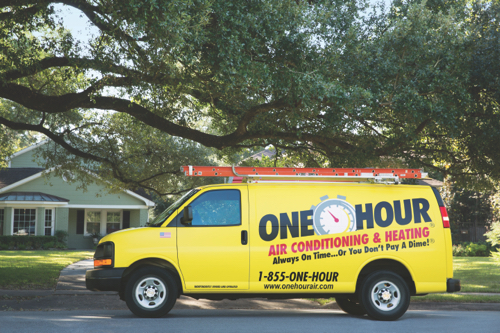
Before you decide, consider the initial investment. Traditional air conditioning units often have lower upfront costs. They’re widely available and relatively easy to install.
Heat pumps, while potentially more expensive at the outset, can offer long-term savings that offset this initial expenditure. It’s crucial to weigh short-term budget constraints against future financial benefits to understand which is more efficient in the long run.
Energy Usage: Which is More Efficient
Efficiency is a key factor in the debate between heat pumps and traditional AC units. Energy consumption directly impacts your utility bills and environmental footprint.
The Energy Efficiency of Traditional AC
Traditional air conditioners can be energy hogs. Their efficiency depends on factors like unit size, age, and maintenance. Modern units have improved significantly in terms of energy efficiency, earning them Energy Star ratings. However, in areas with extended summers, they may still lead to high electricity bills.
Heat Pumps and Their Efficiency Edge
Heat pumps have an edge when it comes to efficiency. Since they transfer heat rather than generate it, they’re inherently more energy-efficient. They can deliver up to three times more cooling or heating energy than the electrical energy they consume. This translates to reduced operating costs, especially in climates with moderate temperature fluctuations.
Seasonal Performance Variations
It’s essential to consider seasonal performance. Traditional AC units excel in hot climates, providing consistent cooling power. Heat pumps, while efficient in temperate regions, may struggle in frigid winters. In such cases, supplementary heating might be necessary, affecting overall efficiency and costs.
Environmental Impact
In today’s eco-conscious world, the environmental impact of your cooling system matters. Both options have their green credentials, but there are differences to note.
The Carbon Footprint of AC Units
Traditional air conditioners, if not chosen wisely, can contribute to a larger carbon footprint. Older models often use refrigerants that harm the ozone layer. Newer models have improved, but they still rely heavily on non-renewable energy sources. Regular maintenance and upgrading to more eco-friendly refrigerants can mitigate this impact.
Heat Pumps and Sustainability
Heat pumps shine when it comes to sustainability. They use environmentally friendly refrigerants and consume less energy overall. By harnessing heat from the environment, they reduce greenhouse gas emissions. In homes powered by renewable energy sources, heat pumps can approach carbon neutrality.
Government Incentives for Green Choices
Governments worldwide are encouraging eco-friendly choices, which can influence your decision. Incentives, rebates, and tax credits are often available for installing energy-efficient systems like heat pumps. These financial perks can make the transition more attractive, reducing the burden on your wallet.
Maintenance and Longevity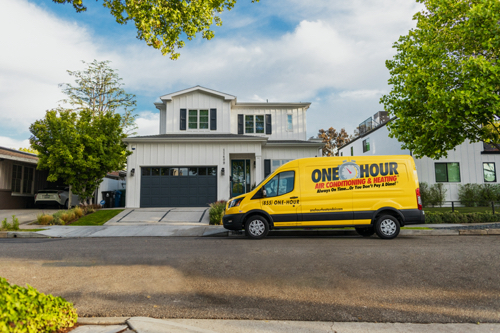
Maintaining your cooling system is essential for its longevity and performance. Both options require regular upkeep, but there are distinctions to consider.
Keeping Your AC in Top Shape
Traditional air conditioners benefit from routine maintenance, including cleaning filters, checking refrigerant levels, and inspecting the unit’s overall condition. Neglecting these tasks can lead to decreased efficiency and a shorter lifespan. Homeowners should budget for annual servicing to ensure peak performance.
The Durability of Heat Pumps
Heat pumps, while generally reliable, also require regular attention. Their dual functionality can lead to increased wear and tear, particularly in regions with extreme temperatures. However, with proper care, they can last 15 to 20 years or even longer. Regular inspections and addressing issues promptly can extend their lifespan.
DIY Maintenance Tips
Homeowners can take proactive steps to maintain their systems. Cleaning or replacing filters regularly, clearing debris around outdoor units, and ensuring proper airflow are simple yet effective measures. These actions can enhance efficiency and prolong the life of your cooling equipment.
Cost Considerations
Cost considerations are pivotal in the decision-making process. Beyond the initial investment, ongoing expenses play a significant role. To make an informed choice, calculate the total cost of ownership. This includes purchase price, installation costs, energy bills, and maintenance expenses over the system’s lifespan. While traditional AC units may appear cheaper initially, heat pumps often offer better value in the long run.
Budgeting for Energy Bills
Energy bills can vary significantly based on your choice. Traditional AC units may lead to fluctuating bills, especially during peak summer months. Heat pumps, with their efficient operation, can help stabilize these costs, making budgeting more predictable.
Exploring Financing Options
For homeowners concerned about upfront costs, exploring financing options is wise. Many manufacturers and financial institutions offer programs that allow you to spread the initial investment over time. This can make the transition to a more efficient cooling solution financially feasible.
Choosing the Right System for Your Home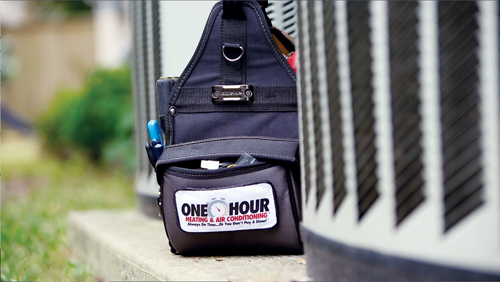
Selecting the right system depends on various factors, including climate, budget, and preferences. Consider these aspects when making your decision.
Climate Considerations
Your local climate plays a significant role in determining which is more efficient and suits your needs best. In regions with extreme heat or cold, traditional AC units or supplementary heating may be necessary. For milder climates, heat pumps are often the superior choice due to their dual functionality.
Personal Preferences
Personal preferences also matter. Some homeowners prioritize eco-friendliness, while others prioritize convenience. Understanding what matters most to you can guide your decision. If sustainability aligns with your values, a heat pump might be the ideal fit.
Consulting with Professionals
When in doubt, consult with HVAC professionals. They can assess your home’s specific needs and provide expert recommendations. Their insights can help you make an informed choice that aligns with your goals and budget.
Making the Switch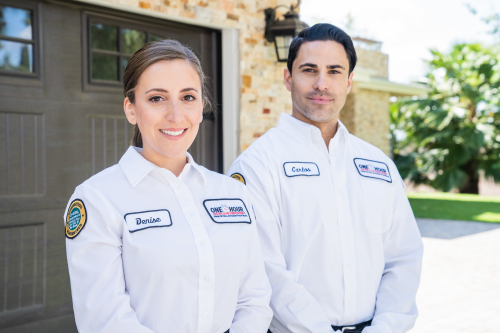
If you’re considering switching from one system to another, there are several practical steps to follow.
The Installation Process
The installation process varies based on your choice. Traditional AC units are typically easier to install, while heat pumps may require a more complex setup due to their dual functionality. Ensure you hire qualified professionals for a seamless transition.
Navigating the Transition
Transitioning from one system to another may require adjustments to your home’s infrastructure. Ductwork modifications, electrical upgrades, and space considerations are common. Understanding these requirements can help you prepare for the change.
Maximizing Your Investment
To maximize your investment, consider integrating smart technology. Smart thermostats and home automation systems can optimize energy usage and enhance convenience. These additions can further boost the efficiency of your chosen cooling system.
Final Thoughts
In the quest for the answer to which is more efficient for cooling your home, the choice between heat pumps and traditional air conditioning is a pivotal one. Both options have their merits and drawbacks, but they cater to different needs and preferences. By understanding the nuances of each system, homeowners can make informed decisions that align with their budget, environmental values, and climate.
Ultimately, whether you’re seeking the versatility of a heat pump or the reliability of traditional AC, the key lies in evaluating your specific circumstances. Consider your climate, budget, and long-term goals. Consult with professionals for guidance, and explore available incentives to make the most cost-effective choice.
